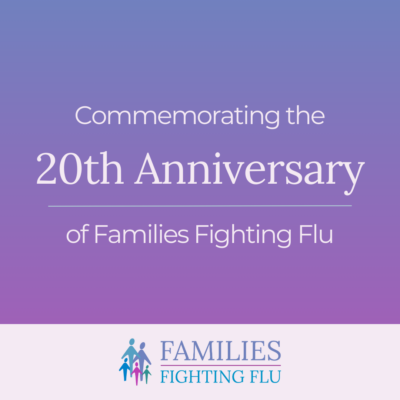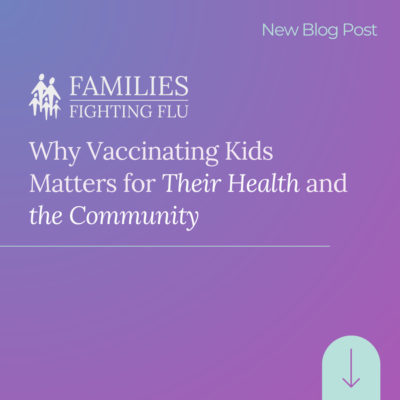
- Advocacy
- Expert Commentary
InFLUencer Nadine Gartner on Changing The Culture of Immunization

Nadine Gartner is a mom, lawyer, and the founding executive director of Boost Oregon, a vaccination educational and advocacy organization. She believes in the power of sharing our stories and choosing love over fear. A graduate of Bryn Mawr College and the University of Michigan Law School, Nadine resides in the beautiful Pacific Northwest with her husband and children. Learn more about Boost Oregon, including via their social media accounts (Facebook, Instagram, Twitter, LinkedIn)
This article is cross-posted from Boost Oregon’s blog.
For far too long, the general public has associated immunizations with fear: fear of needles, fear of the unknown (e.g. ingredients or how vaccines work), and fear of side effects. Most medical professionals, on the other hand, view immunizations as one of the safest and most effective interventions available to us. So, how can we bridge the gap between public perception and the medical world’s understanding? The answer is to change the culture of immunization from fear to love.
Changing the culture of immunization begins with the words and images we employ. First and foremost, STOP USING IMAGES OF NEEDLES. No one likes needles. No one sees a needle and thinks, “YES! Please stab me now!” An analysis by researchers at the University of Michigan showed that 20-30% of adults cited concern about needles. There is no need to use images of needles on flyers, social media, or any other outreach you’re doing to promote immunizations. Use pictures of band-aids, vaccine vials, hearts, or a myriad of other things instead. And, if you see local media using graphics of needles, tell them why it’s hurting our attempts at building healthier communities.
Second, lead with love and empathy when discussing immunizations. If you’re a clinician, use motivational interviewing techniques to pinpoint exactly what is the patient’s concern. Doing so ensures that your patient feels heard and confirms for you what you need to address. If you’re not a clinician, check out these tips for having tough conversations with the vaccine-hesitant folks in your life. Imagine yourself as a journalist or anthropologist and ask a lot of questions: What are your concerns? Where did you hear that? Whom do you trust for medical information? You want to meet people where they are and, together, guide them toward evidence-based resources.
Third, transform your environment into a confident immunization space. Post images and videos of happy people doing things they love with positive messages about immunizations throughout your clinic, children’s schools, and on social media. Place buttons on your lapels or bags that proudly share your immunization status. Ask your children’s schools about their vaccination rates and encourage them to adopt sensible immunization policies. Become a peer advocate and learn how to educate your specific community about vaccines. Be open with your friends and family about your and your children’s vaccination status, and ask about their own. Let’s normalize sharing this information – just as we do with food allergies – so that we can best protect our children and communities.
What if your patient or loved one falls into the truly anti-vaccine crowd and is not merely vaccine-hesitant? More likely than not, the person subscribes to multiple other conspiracy theories and has spent months or even years falling down that hole, so don’t expect to change their mind quickly. Be an approachable and non-judgmental presence for the person by asking questions and responding with kindness. Don’t debate or ridicule the falsehoods. Ask questions that poke holes and prompt the person to reconsider their assumptions. Above all else, be patient and reach out frequently so that the person feels cared for and tethered to a real-life relationship (as opposed to an online conspiracy network).
Vaccines only work when the entire community participates (“community immunity,” rather than “herd immunity,” which turns people off because of the animal connotation), and it’s on all of us to ensure that immunizations are available, accessible, and desirable. Changing the public’s perception is critical to achieving that goal. Let love be your guide as you proudly spread the truth about immunizations.


